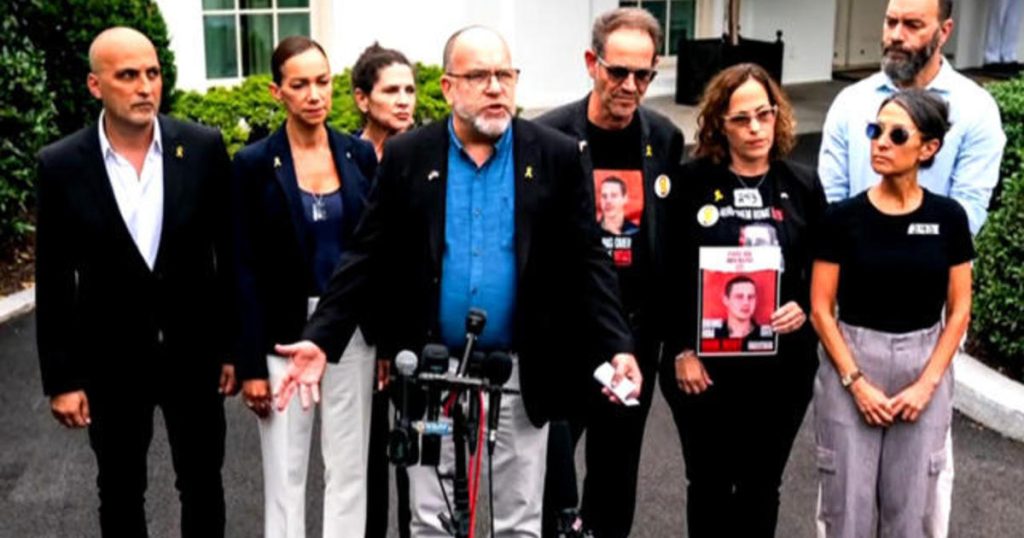This week on “Face the Nation with Margaret Brennan,” Nancy Cordes speaks to Jonathan Dekel-Chen, the father of the Israeli-Americans who were being held hostage by Hamas. The six bodies of the hostages were recently discovered, sparking international outrage and prompting investigations into the circumstances surrounding their deaths. The tragic incident has highlighted the ongoing tensions in the region and raised questions about the effectiveness of efforts to secure the release of hostages held by militant groups.
In addition to the hostage situation, Rep. Tony Gonzales of Texas discusses the current state of migrant crossings along the southern border. Despite historic lows in crossings, the Biden administration has implemented a new asylum crackdown in response to the influx of migrants. Gonzales addresses the challenges facing border security and the need for comprehensive immigration reform to address the root causes of migration. The discussion sheds light on the complexities of border policy and the need for bipartisan solutions to effectively manage immigration flows.
The Biden administration’s asylum crackdown has sparked debate over the best approach to address migration challenges, with some advocating for stricter border controls and others calling for more humanitarian policies. As the situation at the southern border continues to evolve, lawmakers are grappling with how to balance security concerns with compassionate treatment of migrants seeking refuge in the United States. The discussion on “Face the Nation” underscores the need for a nuanced and multifaceted approach to immigration policy.
In light of the ongoing hostage crisis and border security issues, the role of the United States in global affairs has come under scrutiny. As a leading nation, the U.S. faces pressure to address international conflicts, manage migration flows, and uphold human rights around the world. The discussion on “Face the Nation” highlights the importance of diplomatic engagement, strategic cooperation, and humanitarian assistance in addressing the complex challenges facing the global community.
The tragic discovery of the bodies of the hostages held by Hamas serves as a stark reminder of the risks faced by individuals caught in conflicts and the urgent need for diplomatic efforts to secure their release. As the international community responds to the crisis, there is a growing recognition of the need for coordinated action to address the root causes of conflict, promote peace and security, and protect the rights of vulnerable populations. The discussion on “Face the Nation” underscores the importance of multilateral cooperation and diplomatic initiatives to address global challenges.
In conclusion, the discussions on “Face the Nation” highlight the interconnected nature of global issues, from hostage crises to border security and international diplomacy. As the world faces complex challenges, it is essential for policymakers, lawmakers, and citizens to engage in informed and constructive dialogue to find solutions that promote peace, security, and prosperity for all. By addressing the root causes of conflicts, implementing effective border policies, and engaging in diplomatic initiatives, the United States and its allies can work towards a more stable and secure future for the international community.


